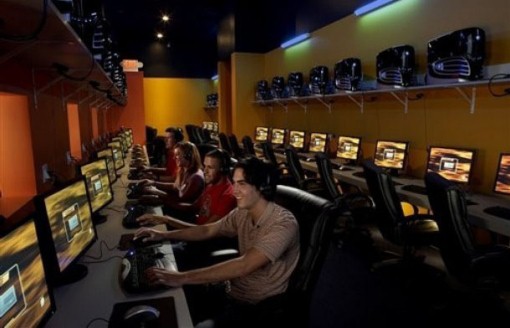Over the years, gamers have been generalized and portrayed as brooding, introverted geeks, so much so that some might say there’s social stigma attached to being a gamer. We play myth busters and hope to dispel the veil of misinformation that surrounds this subject. Online multiplayer gaming is the Facebook of gaming networks. Even while seated in their rooms, gamers can meet other gamers from all over the world by taking their games online.
Most people seem to think of gamers as dark, anti-social beings. Nothing could be further from the truth. Gaming is a highly social activity, what with the extensive number of gamers who meet, interact and develop friendships using gaming as a vehicle.
Most games and multiplayer platforms such as Xbox Live, PlayStation Network and Steam also allow you to add others to your friend’s lists and play with them frequently. And then you have online clans, wherein flaggers team up frequently in an effort to rise up clan rankings. As more and more games feature co-operative game modes, more and more gamers are teaming up in an effort to experience these modes. So much so that game sales are being influenced most significantly by the strength of their multiplayer component, rather than by the single player campaign.
This escalates when the topic of Massively Multiplayer online games comes up. These games feature persistent online worlds where players compete with, or support each other. Players band together to attempt quests and clear missions in MMORPGs, thus heightening their social activity and usually moving their relationships to the next phase. Take Tamara Langman and John Bentley, for example, who met each other when logged into World of Warcraft and eventually ended up getting married. World of Warcraft and Runescape are the most popular MMORPGs, with the former holding an 11+ million paying subscriber base. Despite using a pay per month model, Runescape which is free to play has over 156 million registered accounts. These numbers immediately tell you that tons of people out there like playing games that are purely multiplayer.
Add casual online games to the mix and the list grows even larger. Social networking games such as Farmville, Mafia Wars and Poker encourage user to user interaction in terms of gifts, chips and the like. TyprX is a useful competitive game in work environments – it compares typing speeds among individuals. In the mobile territory, games such as Word-feud recently spiked in popularity with gamers competing on their smartphones. Moving offline, we’ve seen people compete with each other over who has the higher Angry Birds level score. Monster Hunter Portable’s popularity in Japan rose to very lofty heights, as players formed parties and traded items using the PSP’s ad-hoc mode. In the competitive gaming scene, LAN parties and offline tournaments are as popular as always, and the formation of clans at the neighborhood cybercafe is not an uncommon occurrence as gamers converge to get their challenging multiplayer fix. Also popular are gaming lounges, where tournaments are held regularly on top of offering multiplayer action along with food and drinks. These places are ideal for hosting small scale events, LAN parties or tournaments because of the convenience offered by the all in one solution.
Games such as StarCraft and Counter Strike have massive followings, with StarCraft even becoming a professional sport in Korea. Matches are telecast on TV, and some events attract up to 1.2 Lakh people in attendance! Starcrafters are media celebrities out there, with one certain player, Lim Yo-Hwan having a fan club of more than half a million members. Casual gaming made a huge splash on consoles following the release of the Nintendo Wii, and titles such as Wii Sports and Fust Dance became party staples at gamers’ house. Music games such as Rock Band and Guitar Hero also support multiplayer, which encourages quite some fun. More recently, Kinect and PlayStation move added sizzle to casual games on the Xbox 360 and PlayStation 3 with titles such as Kinect Adventures and Sports Champions.
When it comes to talking about games, gaming forums are the places to go. NeoGAF, for example, has nearly 70K registered users who’ve made a total of nearly 32 million posts. Gamers discuss past, current and upcoming games, cross platform and post gaming experiences and gaming hardware. The latest news in the gaming world is also routinely thrown around3 and dissected, helping you stay up to date with information. Other gaming communities are web sites and tools such as Playfire and Xfire, which provide players with lists of the games they’ve played or are playing, complete with their ratings and screenshots. They can also create automated forum signatures and the like by tracking your gameplay via achievements.
So there you have it! Gamers are fiercely social creatures, despite what people might tell you. Sure, there may be a sizeable number of anti-social gamers, but there are people like that in every community, gamers or not.



